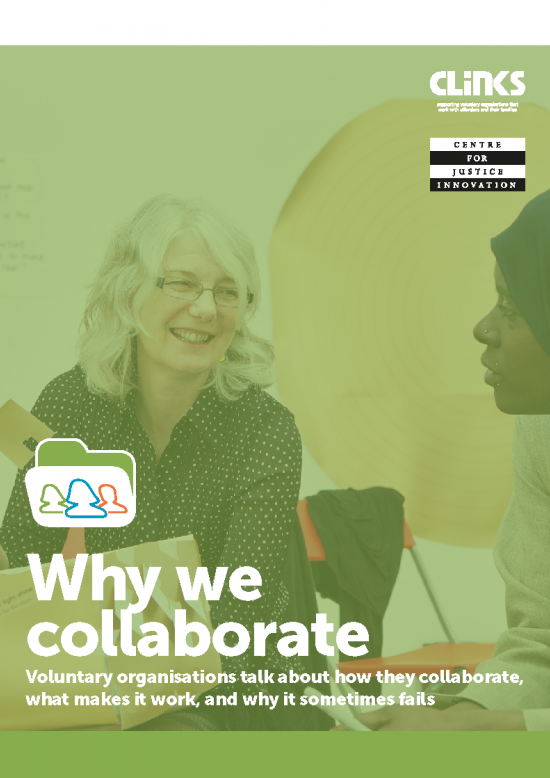
Why we collaborate
Voluntary organisations talk about how they collaborate, what makes it work, and why it sometimes fails
This report, a collaboration between Clinks and Centre for Justice Innovation explores voluntary sector collaboration in the criminal justice system. The report showcases four case studies where voluntary organisations talk about how they collaborate, what makes it work, and why it sometimes fails. It seeks to draw conclusions about the motivation for collaboration, the impact which it can have and the factors which underpin successful collaboration.
Within the four case studies the report explores the following questions:
- Why do charities collaborate?
- What makes a collaboration successful?
- How can the sector encourage better collaboration?
RECOMMENDATIONS
When working in partnership, voluntary sector organisations should:
- Establish good relationships at every level of the partnership
- Ensure collaboration extends to communication and practice sharing between the frontline workforces
- Standardise and minimise monitoring systems where possible
- Continually assess partner engagement, especially buy-in from the statutory agency
- Don't be afraid to start small and experiment.
In order to support collaboration, commissioners should:
- Understand what is already in place before commissioning
- Provide long-term funding and policy commitment, which allows partners to invest time in nurturing relationships
- Acknowledge the flexible nature of partnerships by being responsive to requests to re-organise partnership arrangements within funding periods.
Publish date
1 March 2017